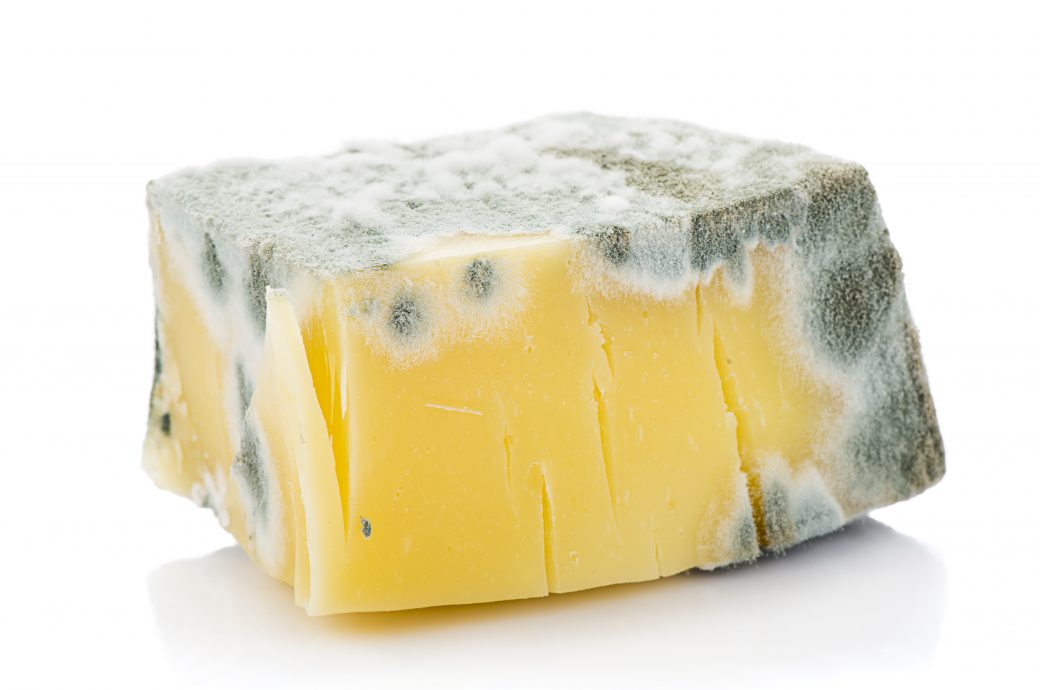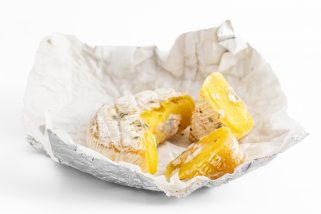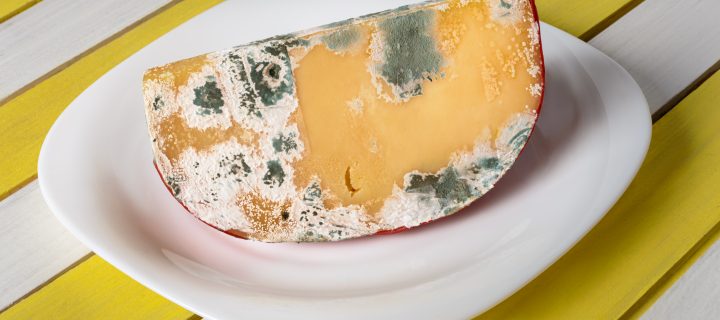Cheese might be the only food we’d overlook bits of green and fuzz for its unmatched deliciousness.
But is moldy cheese safe for us to stomach?
Sure, some cheeses are made through mold; some of the molds popularly utilized to make cheese are penicillium, roqueforti, glaucum, and candidum, according to Healthline. These are catalysts to create favourites like Stilton, Gorgonzola and Roquefort. Another variety of cheese is brie, which has mold on its thick outer layer and soft interior.
Besides these cheeses that need mold, are the others okay for us to consume?
Hard Cheese
Since mold isn’t use in hard cheese production, you’ll want to avoid it for the most part. But, one section that’s molding is different than the entire brick being inedible.

If you see mold on your hard cheese’s surface layer, one inch should be cut below and around the mold with a knife. Be sure the knife with the mold doesn’t contaminate the rest of the brick either. Once the mold is removed, put the rest of the cheese, with clean hands, in a new wrap or container. Examples of these cheeses include Parmesan, Swiss, Cheddar, Colby, etc.
Related: How to Enjoy Cheese, Guilt-Free
Soft Cheese
Cottage cheese, cream cheese, Neufchatel, chevre and Bel paese that have mold need to be discarded. The technique of cutting around the mold can lead to further contamination since the knife can infect the cut pieces. Also, the high level of moisture present in soft cheese leads to the mold spreading beyond the surface.

Soft cheese with mold should always be discarded, and this is especially true if it wasn’t used as an ingredient in creating the cheese. Consuming moldy soft cheese can lead to food poisoning, as molds can harbor dangerous bacteria like E. coli, salmonella, listeria and brucella. Some molds can also create mycotoxins, which lowers immunity, causes severe food poisoning, and in a few extreme cases, can lead to cancer.
If soft cheese is consumed it can cause food poisoning since molds contain harmful bacteria. These are E. coli, salmonella, listeria and brucella. Some molds also generate mycotoxins, which could potentially result in lowering immunity, severe food poisoning, and in extreme cases, cancer.
Photo Credit: Marina Kutukova/Shutterstock.com; Levent Konuk/Shutterstock.com; BigNazik/Shutterstock.com












